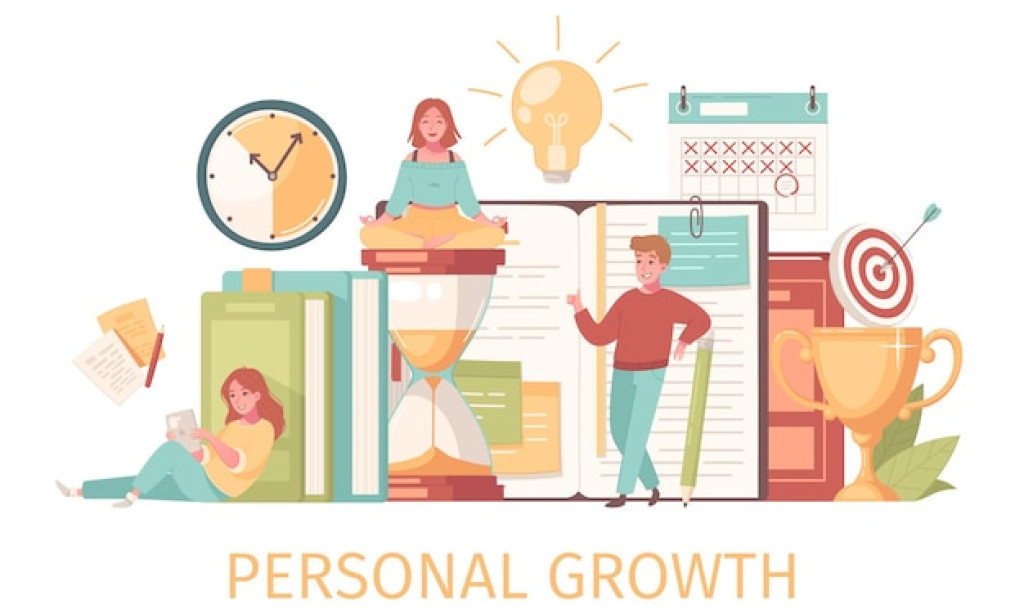Table of Contents
- The Journey of Self-Discovery: Why It Matters
- Identifying and Overcoming Obstacles to Growth
- The Power of Self-Awareness in Personal Development
- Cultivating a Growth Mindset: A Key to Unlocking Potential
- Setting Intentional Goals for Personal Growth
- Building a Foundation for Long-Term Transformation
1. The Journey of Self-Discovery: Why It Matters
Embarking on a path of self-discovery is one of the most profound and life-changing experiences you can undergo. It involves peeling back layers of conditioning, fear, and doubt to reveal the true version of yourself. This journey begins with asking fundamental questions: Who am I? What do I truly desire from life? What are my strengths, and what do I need to improve?
Self-discovery is not a one-time event but an ongoing process. It requires honesty, patience, and a willingness to confront uncomfortable truths. As you explore your inner world, you gain deeper clarity about your purpose and your unique capabilities. This newfound awareness forms the bedrock of personal growth.
Through introspection, you can begin to release self-limiting beliefs and set a new course for your life—one that aligns with your values, passions, and aspirations. Whether you're just starting out or have already begun your journey, understanding the significance of self-discovery helps you stay motivated and focused on the path ahead.

2. Identifying and Overcoming Obstacles to Growth
No personal growth journey is free from obstacles. As you begin to explore your potential, you’ll likely encounter resistance in the form of mental barriers, negative self-talk, or external challenges. Recognizing these obstacles is the first step toward overcoming them.
One common hurdle is fear. Fear of failure, fear of the unknown, or fear of change can paralyze even the most determined individuals. However, fear is not something to be avoided—it’s something to be faced and understood. By examining the root causes of your fears, you can reduce their power over you.
Another obstacle is the tendency to fall into the trap of perfectionism. Many individuals set unrealistically high standards for themselves, which can lead to frustration and burnout. It’s essential to remind yourself that growth is not a linear process, and progress, no matter how small, is still progress.
Additionally, external obstacles like unsupportive environments or societal expectations can impede growth. In these cases, it’s vital to surround yourself with positive influences and create a supportive environment that nurtures your growth. Whether it’s joining a community of like-minded individuals or finding a mentor, external support plays a significant role in overcoming challenges.

3. The Power of Self-Awareness in Personal Development
Self-awareness is the cornerstone of personal development. It involves the ability to observe your thoughts, emotions, and behaviors without judgment. When you develop self-awareness, you can identify patterns that either promote or hinder your growth. This clarity enables you to make conscious decisions and take proactive steps toward change.
To cultivate self-awareness, start by regularly practicing mindfulness. Meditation, journaling, and reflective practices allow you to tune into your inner world. Ask yourself questions such as: How do I respond to stress? What triggers my negative emotions? What actions make me feel fulfilled? By paying attention to your responses, you can begin to understand the underlying beliefs and fears driving your behavior.
Self-awareness also involves understanding your strengths and weaknesses. While it’s important to recognize areas for improvement, it’s equally crucial to celebrate your strengths. This balanced perspective creates a more holistic view of yourself and helps you build confidence in your abilities.

4. Cultivating a Growth Mindset: A Key to Unlocking Potential
A growth mindset, as coined by psychologist Carol Dweck, is the belief that abilities and intelligence can be developed with effort and perseverance. Embracing a growth mindset is a powerful tool in unlocking your potential. It allows you to view challenges as opportunities for learning rather than threats to your self-worth.
To cultivate a growth mindset, start by reframing failures as learning experiences. Instead of viewing setbacks as indicators of your limitations, see them as stepping stones on the path to mastery. When you encounter difficulties, ask yourself: What can I learn from this? How can I improve moving forward?
Another key component of a growth mindset is embracing effort. Understand that progress takes time, and consistent effort leads to improvement. Celebrate small wins along the way, and recognize that growth is not an overnight process. By committing to ongoing learning and adaptability, you unlock the potential to achieve remarkable personal growth.
5. Setting Intentional Goals for Personal Growth
Setting clear, intentional goals is crucial for navigating the path of self-discovery and growth. Without direction, it’s easy to lose focus and become stagnant. By setting specific, measurable, achievable, relevant, and time-bound (SMART) goals, you give yourself a roadmap to follow and the motivation to keep moving forward.
Begin by identifying your core values and passions. What aspects of your life do you want to improve? Whether it’s your career, relationships, health, or finances, set goals that align with your vision for the future. Break down these goals into smaller, actionable steps that you can tackle on a daily or weekly basis.
As you work toward these goals, it’s essential to stay flexible. Life is unpredictable, and you may encounter unexpected challenges. Instead of getting discouraged, view these challenges as part of the growth process. Adjust your goals as needed but remain committed to the larger vision you’ve created for your life.
6. Building a Foundation for Long-Term Transformation
The journey of self-discovery and growth is not a quick fix but a lifelong process. To sustain your growth, it’s important to build a strong foundation for long-term transformation. This involves creating habits and routines that support your personal development.
One of the most effective ways to build a foundation is through consistent daily practices. Whether it’s journaling, exercising, meditating, or reading, daily habits help you stay grounded and focused. They also reinforce your commitment to growth and ensure that progress is made consistently.
Another key element of long-term transformation is building resilience. Life will inevitably present challenges, but how you respond to them determines your ability to continue growing. Cultivate mental and emotional resilience by embracing setbacks as opportunities to strengthen your character.
With the right habits and mindset, you can create a sustainable path toward personal growth, allowing you to unlock your full potential over time.





You must be logged in to post a comment.